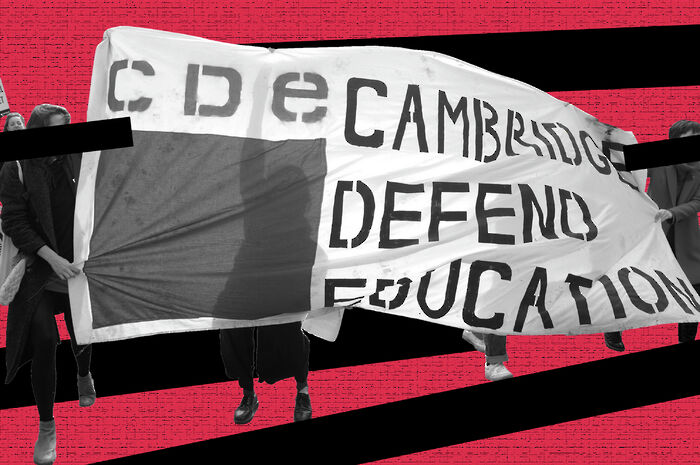What did Stephen Toope say in his annual address?
The vice-chancellor touched on multiple points of contention which have been raised during his tenure, and indicated a shift in his focus on the Prevent duty and University democracy

“As rituals of initiation go, I hope this one has run its course”, Cambridge Vice-chancellor Stephen Toope said of the past 12 months in his annual address at Senate House on Monday.
In his 20-minute address, Toope touched on the “divisive” issues facing Cambridge: staff pension strikes, divestment, the Prevent legislation, and, more broadly, University democratic decision-making.
In one of his more public acknowledgements of the frustration felt within the University community amid an unresolved dispute over staff pensions, Toope said,“I deeply regret the erosion of trust between those who have voiced their concern about the proposed changes, and those of us whose job is to keep the university running and to focus on the long term”.
Frustrations mounted earlier this year as staff took to the picket lines in protest of proposed changes to staff pensions by employer advocacy group Universities UK (UUK), which had initially received support from the University in its individualisation of risk on employees.
Toope’s concessions during the strike action – in calling on Cambridge to assume higher pension contribution costs, and in introducing a Cambridge-specific pensions scheme if negotiations failed to reach a resolution – had followed months of criticism of the University’s lack of sympathy for staff concerns.
Toope acknowledged in his annual address the personal impact of the pensions crisis for staff, that the situation was “fraught – because it directly touches on people’s livelihoods”. He argued that the dispute required “complex thinking”, mentioning his “genuine dissatisfaction at not being able to deliver easy answers to questions that trouble the entire system”.
“I deeply regret the erosion of trust”
The vice-chancellor expanded on staff frustration beyond the issue of pensions, touching on concerns that the University has lost its sense of being a “self-governing community of scholars”. He acknowledged the “appetite” to simplify the University’s decision-making processes”, to “ensure that each [University] committee is clear about its role… without reducing democratic oversight of policy decisions”.
Recently Cambridge’s committee-based governance system came under scrutiny by former CUSU President Daisy Eyre, rendering University Council, Cambridge’s principal policy-making committee, a “rubber-stamping body”, where “decisions have been made long before they make it to the Council.”
Toope’s address also indicated a shift in the University’s approach on the Prevent duty, a counterterrorism policy introduced by the UK government in 2015 and rolled out in 2016 across the collegiate University. Toope’s address offered his first public acknowledgement of collegiate differences in the rollout of the Prevent legislation, and announced that the University would “work to better coordinate approaches across collegiate Cambridge”.
Earlier this year, Varsity revealed inconsistencies in different colleges’ interpretations and implementations of the Prevent duty, with at least two colleges having intervened in speaker events.
Toope reiterated Cambridge’s commitment to a ‘light-touch’ approach on Prevent, a thread in University rhetoric which came under scrutiny following University intervention in a panel discussion run by the Cambridge University Palestine Society (PalSoc) in November 2017. The University requested replacement of the panel’s chair, Dr Ruba Salih, with a “neutral” staff member – a move the University apologised for earlier this year.
Toope announced several new University initiatives in his address, including commitments to reimburse EU staff for settlement application costs, and Cambridge's pledge to raise £500m for student support initiatives.
 News / Trinity exam burglar jailed for 11 months18 July 2025
News / Trinity exam burglar jailed for 11 months18 July 2025 News / Newnham students warned against using ‘secluded or concealed routes’ in evening after student followed16 July 2025
News / Newnham students warned against using ‘secluded or concealed routes’ in evening after student followed16 July 2025 Lifestyle / Seven species of Sidge17 July 2025
Lifestyle / Seven species of Sidge17 July 2025 News / Fenner’s cricket ground suffering ‘dismal decline,’ action group says 17 July 2025
News / Fenner’s cricket ground suffering ‘dismal decline,’ action group says 17 July 2025 Interviews / The Cambridge student hoping to become mayor of Baltimore: Thomas ‘TJ’ Jones16 July 2025
Interviews / The Cambridge student hoping to become mayor of Baltimore: Thomas ‘TJ’ Jones16 July 2025








